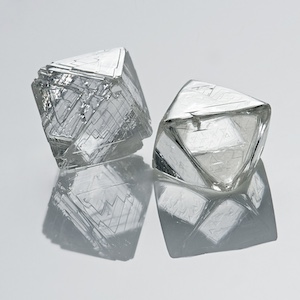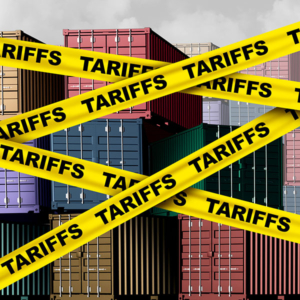
The G7’s sanctions on Russian-mined polished diamonds, set to go into effect March 1, will have a six-month “sunrise period” to let the industry adjust to the new rules, according to a statement from the U.S. Embassy in Botswana.
The ban will initially apply to polished diamonds at least one carat in weight, then expand in September to a half-carat and larger.
To verify the diamond’s provenance, the G7 will establish a new certification system based in Belgium. From March through August, G7 certification will be recommended; as of Sept. 1, it will be required.
(At press time, it wasn’t clear if the system would be operational by March. Sources have told JCK that a pilot program is currently under development.)
If importers don’t use G7 certification during the March–August “sunrise period,” they will be required to provide “documentary supply chain evidence” that their diamonds weren’t mined in Russia, the Embassy fact sheet said. It didn’t specify what would constitute such evidence, but said further information will be available prior to March 1.
The statement also gave some new details on G7 certification: It will “work by using and expanding on existing tracing technologies and controls,” but both miners and manufacturers will be required to “incorporate validated traceability solutions into their operations.” (The G7 will eventually provide a list of such systems, according to the statement.)
Data from the traceability programs will be sent to a “secure, independent distributed ledger,” overseen by the Belgium government. For a diamond to be G7-certified, it must pass through a “central import hub” in Belgium in its rough form for a physical check.
The G7 will work with Belgium to “ensure the system is functional and presents minimal additional costs and delays,” the fact sheet said. Once the new system demonstrates that it’s reliable, “other credible options to the single [Belgian] node can be considered.”
Direct importation into G7 member countries of “beneficiated” goods (i.e., those polished in the country where they were mined) may be allowed if “appropriate measures are put in place to ensure non-contamination of Russian diamonds,” according to the statement. It also said the G7 is still considering “how to treat existing stocks of diamonds (grandfathered diamonds) and jewelry.”
In a separate statement, the U.S. Embassy in Botswana said the country will benefit from selling its diamonds without the “blemish” of Russian gems. “As the world’s leading responsible natural diamond producer, Botswana has the opportunity to better distinguish the provenance of its diamonds on the global market, introduce the world to cutting-edge traceability technologies (including some already being perfected in Botswana), and celebrate the Botswana diamonds-for-development story,” it said.
Jewelers of America is holding a webinar, “Get Ready for the New Russian Diamond Restrictions,” with Brad Brooks-Rubin, senior adviser in the State Department’s Office of Sanctions Coordination, on Thursday, Feb. 15, at 1 p.m. Register here.
(Photo courtesy of the Natural Diamond Council)
- Subscribe to the JCK News Daily
- Subscribe to the JCK Special Report
- Follow JCK on Instagram: @jckmagazine
- Follow JCK on X: @jckmagazine
- Follow JCK on Facebook: @jckmagazine





